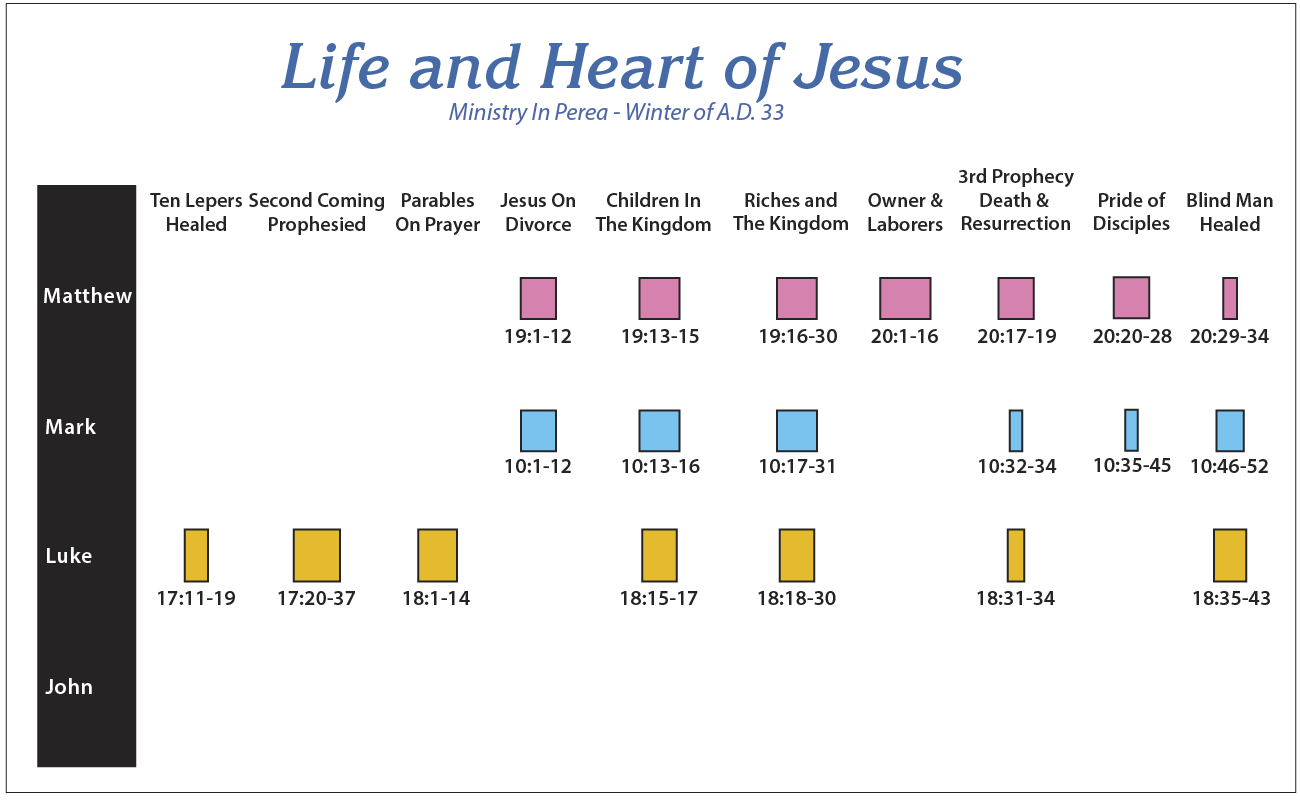
Marriage can be a great blessing as well as a horrible experience. Many have discovered that a charming personality and/or physical beauty are elusive measures of future joy in marriage. It is sad that there are couples where the husband is handsome and the wife is beautiful, but one or both of them are ugly on the inside. Then because the marriage is a miserable experience, one or both of them want a divorce. A very common approach that is increasingly being tried to avoid an unhappy marriage is to live together or cohabit. Some believe that cohabitation will prove to be a great test of future happiness, should they decide to marry. The idea is simple. Perform a test! If cohabitation is a great experience, then get married. But the most recent and reliable research, not pop-culture propaganda, is now revealing that cohabitation prior to marriage only increases the risk of greater unhappiness in marriage. For example, the National Survey of Family Growth has reported that only thirteen percent of couples who start living together are still cohabiting after five years. This reveals that cohabitation is a highly unreliable test of future success. However, before anyone decides to quarrel over the statistics, let me encourage you to not miss the real message, that the root problem is that everyone is a sinner. Consequently, every marriage contains moments or maybe even long periods of misery. So, were the twelve disciples correct? Is it better to not marry? That was the question they asked and then Jesus gave them the answer. Our study comes from Matthew 19:10-12.
Background
In our last study, we were told that Jesus had just said in Matthew 19:6-9 that God had designed marriage to be permanent from the very beginning of creation (Genesis 2:23-25). This was revealed immediately after Adam and Eve were created. It is also clear from Malachi 2:16 that God has always hated divorce and told us to not divorce our wife or husband.
“For I hate divorce,” says the LORD, the God of Israel, “and him who covers his garment with wrong,” says the LORD of hosts. “So take heed to your spirit, that you do not deal treacherously.” Malachi 2:16 (NASB)
Notice that God refers to divorce as a treacherous act. The Hebrew word has the sense of someone who is faithless. Habakkuk 2:5 translates the word as “betray.” That is, divorce is an act of betrayal. The message is easily understood that God hates divorce. God designed marriage to be permanent. Any violation of this principle is hated by God.
Yet, in Matthew 19:8-9 Jesus revealed that God the Father allows divorce only because both males and females have hard or stony hearts. He said,
Because of your hardness of heart Moses permitted you to divorce your wives; but from the beginning it has not been this way. And I say to you, whoever divorces his wife, except for immorality, and marries another woman commits adultery. Matthew 19:8-9 (NASB)
So, divorce has been granted by God only for those situations where one spouse has a hard heart and wants out of the marriage. It is often assumed that the one who initiates the divorce has the hard heart. But the truth is that the adulterer has a hard heart and may be the one initiating the divorce. Sometimes divorce may be the best action. Some outrageous situations have occurred and will continue to occur in connection with sexual sins. Wicked men and women do not always commit just adultery.
It Is Better Not To Marry
The disciples quickly understood the implication of Jesus’ teaching. To be trapped in an unhappy marriage for life was a difficult thing for them to accept. The Pharisees had taught that if a wife was a bad cook or did anything that made the husband unhappy, he could divorce her. They abused Moses’ statement in Deuteronomy 24:1, where he had declared,
When a man takes a wife and marries her, and it happens that she finds no favor in his eyes because he has found some indecency in her, and he writes her a certificate of divorce and puts it in her hand and sends her out from his house . . . Deuteronomy 24:1 (NASB)
They distorted the statement “that she finds no favor in his eyes.” The Pharisees said that she could be divorced for reasons as “she spoiled a dish,” “he found someone else prettier,” and she found “no favor in his eyes.”[1] The list of possible wrongs is left to the feelings of the husband. In Jesus’ time, divorce was tragic because women depended upon their husbands to earn the majority of the family’s income. She was in financial trouble without him.
So, we should not be surprised that the disciples said,
If the relationship of the man with his wife is like this, it is better not to marry. Matthew 19:10 (NASB)
Even the disciples recognized that marriage can be difficult at times. Let’s remember that both men and women can be ugly on the inside! Both men and women can make marriage a miserable experience at times. Adultery and divorce occur because of spiritual immaturity and hard hearts. That was Jesus’ statement in Matthew 19:8.

Not All Men Can Accept This
Then Jesus said to them,
Not all men can accept this statement, but only those to whom it has been given. Matthew 19:11 (NASB)
Now we are faced with a difficult question that other teachers and pastors have asked. Was Jesus referring to His teaching about God’s will regarding divorce or to the disciples’ comment that it is better to not marry? Whatever the decision, it is clear that “not all men can accept” either statement. So, this leaves two possibilities.
Not All Are Willing To Not Divorce
First, it is possible that Jesus’ point was that some people will not accept God’s will about divorce. They view marriage as the Pharisees did. Marriage is optional. If you like it great, enjoy! If she is wonderful, keep her. If he is a man of character and compassionate, then keep him. If after you have tried them and do not like him or her, then try someone else! This is the cohabitation approach, only it does not have the legal issues. But it still has all of the emotional trauma and the baggage of future ugly memories.
Others hear God’s will about divorce, desire to please Him, and so choose to marry. Just as with cohabitation, the most common years in which couples separate or get divorced are the first year, the third year, and the fifth year. If the couple continues to cohabit or remain married, then the next spike in divorce is after the last child leaves the home. That is called the “empty nest syndrome.” Counselors report that the vast majority of couples who do not separate or divorce, discover that by the seventh year they are happier together than ever before. The message is that those early years are a time of adapting to one another. Those are years where we learn humility and how to love one another. Those are the years where infatuation or lust is transformed into true love. That love is multi-dimensional and includes sexual love. If the husband and wife are true Christians and remain married, those are the years when a husband and wife learn to put Christ first in their lives. As a result, they save their marriage. Most root problems in marriage reveal that the husband and wife are not loving Christ with all their heart, mind, soul, and strength (Matthew 22:37). Because Christ is not first in their lives, it affects their marriage.
Those who do not divorce learn humility and wisdom that sometimes does not come until much later in life. Believers who submit to God’s will can learn the blessing of spiritual maturity. Many couples have told similar stories. But the idea of living with someone who keeps “burning the toast” is unacceptable to the self-centered and proud. They have a character flaw. They lack humility. To agree to marry someone and promise to live with him or her forever, without knowing what life will be like for the rest of one’s life can be threatening.
Not All Are Willing To Be Single
The second possibility is that Jesus was referring to the disciples’ statement that it is better to not marry. The next verse reveals that this is the correct conclusion since Jesus will continue talking about this topic. He teaches about celibacy.
When Jesus said, “Not all men can accept this statement,” He was referring to the disciples’ comment that it is better to not marry than be trapped in a marriage to a difficult woman. So, what did Jesus mean? It is clear from the next verse that He was referring to celibacy or never being married. Here is the next verse. When Matthew wrote these words, he did not create chapters and verses. Therefore, verse 12 should be understood as a continuation from verse 11.

Three Types of Eunuchs
In verse 12 Jesus clearly responds to the disciples’ comment that it is better not to marry. He said,
For there are eunuchs who were born that way from their mother’s womb; and there are eunuchs who were made eunuchs by men; and there are also eunuchs who made themselves eunuchs for the sake of the kingdom of heaven. He who is able to accept this, let him accept it. Matthew 19:12 (NASB)
Jesus refers to three types of eunuchs. In each case, these are men who did not have the urge or desire to be sexually involved with a woman.
1) Eunuchs From Birth
The first type of eunuch is a man who lacks sexual organs from birth. Medical science refers to a man who is born without a penis as having a birth defect called penile agenesis. This is a very rare medical condition. These men will have all the other characteristics of a male, but they could not father a child until the arrival of modern science. Historically, such men may have married but could not have fathered children. Other men who are born without testicles have a medical condition called testicular agenesis. A man with testicular agenesis cannot father children. This is also a very rare medical condition. Therefore, it is possible that Jesus was referring to both medical conditions when He said a man was made a eunuch from birth. However, it is likely that He referred to testicular agenesis.
2) Men Made Eunuchs
The second most common type of eunuch occurred when a man is made a eunuch. That is, his testicles were crushed. It is also called castration. The pain would have been excruciating and last a long time. The Mosaic Law prohibited a man from serving as a priest if his testicles were crushed (Leviticus 21:20).
Today, animals are often castrated. It is politely called neutered. Men are also chemically or surgically castrated for many reasons, but not for the purpose of overseeing a king’s harem or serving as a government official. The idea is that they did not then have normal sexual desires.
3) Men Who Had the Gift of Singleness
Another type of eunuch are those “eunuchs who made themselves eunuchs for the sake of the kingdom of heaven.” Jesus’ message is that some men and women have chosen to not marry in order to serve God. This is called celibacy. The apostle Paul reminds us in 1 Corinthians 7:32-35 that when a person is married, they divide their time between God and their spouse. He said this,
But I want you to be free from concern. One who is unmarried is concerned about the things of the Lord, how he may please the Lord; but one who is married is concerned about the things of the world, how he may please his wife, and his interests are divided. The woman who is unmarried, and the virgin, is concerned about the things of the Lord, that she may be holy both in body and spirit; but one who is married is concerned about the things of the world, how she may please her husband. This I say for your own benefit; not to put a restraint upon you, but to promote what is appropriate and to secure undistracted devotion to the Lord. 1 Corinthians 7:32-35 (NASB)
At the close of his teaching, he makes the point that it is better to not marry and serve the Lord. But not everyone can remain celibate. For example, in 1 Corinthians 7:2-7 Paul states that it is better to marry than to commit immoralities. Immoralities comes from the Greek word porneia. This word includes sexual activities with other people and maybe sexual activity with one’s self. Then in verse 9, Paul adds that is better to marry than to burn with sexual passion.
Before we leave this passage, we need to realize that this passage also speaks to a cultural issue among Christians. We could call it a Christian culture issue. The issue is that being a Christian has almost become equal to being a “great family man” or “having a great family.” They are almost synonymous in the minds of some Christians. It pleases God that a husband is devoted to his wife and loves her. It pleases God that a husband is the spiritual leader in the family. It pleases God that a husband earns the living for the family. It pleases God that everyone in the family are Christians. It pleases God that the husband spends time with his family and wife. Such husbands are praised as being a “great family man” or “having a great family” among Christians. This has been promoted from our pulpits in recent decades because husbands and some wives have been out of balance. Historically, other “priorities” have interfered with family. But it is obvious today this principle has been distorted and is now out of balance. Christians have swung from one end side of the pendulum to the other side. Now some families spend Sunday mornings “recovering from the week,” or after a busy Saturday. It is common for some couples and to skip church on an occasional Sunday morning so that they can enjoy “private time.” Some families frequently take weekend trips to the mountains, the beach, the lake, or etc. One website claims that Christians should not feel guilty skipping church. While there is nothing wrong with taking an occasional vacation, believing couples have become unbiblical by putting each other or the family above God and the Lord’s Day. We have forgotten Paul’s point in 1 Corinthians 7:32-35. He urged us to not marry so that we can give “undistracted devotion to the Lord.” What has happened is that God is very low on the list of priorities for some professing believers. Worshiping God, serving Him in the church, and doing evangelism are now obligatory tasks. I said “tasks” for a reason. There is nothing wrong with being married, but it is a sin if the couple loves each other more than God.
Finally, in 1 Corinthians 7:7 Paul reveals that God has given some individuals the gift of celibacy. That is, it is God’s will for some individuals to not marry. These individuals can fully serve the Lord without distraction (1 Corinthians 7:35). But that does not mean if someone does not have the gift of celibacy, God has given them permission to not give God first place in their lives. Notice that Paul said, “undistracted devotion to the Lord.” He did not mean that married believers can put each other and family above total devotion to the Lord.
In 1 Corinthians 7:7 Paul reveals that God has given some individuals the gift of celibacy. That is, it is God’s will for some individuals to not marry. These individuals can fully serve the Lord without distraction (1 Corinthians 7:35).
Conclusion
Jesus’ last words in verse 12 are, “He who is able to accept this, let him accept it.” Jesus’ message and Paul’s message is that it is better to not marry if the Lord has given someone the gift of celibacy. If you are single or have been divorced, consider the possibility that it could be the Lord’s will that you not marry or remarry. But if you do marry, remember that it is God’s will that you never divorce your spouse. May the Lord be glorified in all that we do.
Reference:
1. Gittin. 9.10. Jacob Neusner. The Mishah. Yale University Press. 1988. p. 487.
Suggested Links:
Life of Christ – events, miracles, teachings and purposeWhen and Why God Permits Divorce
A Biblical Divorce
Biblical Divorce and Remarriage